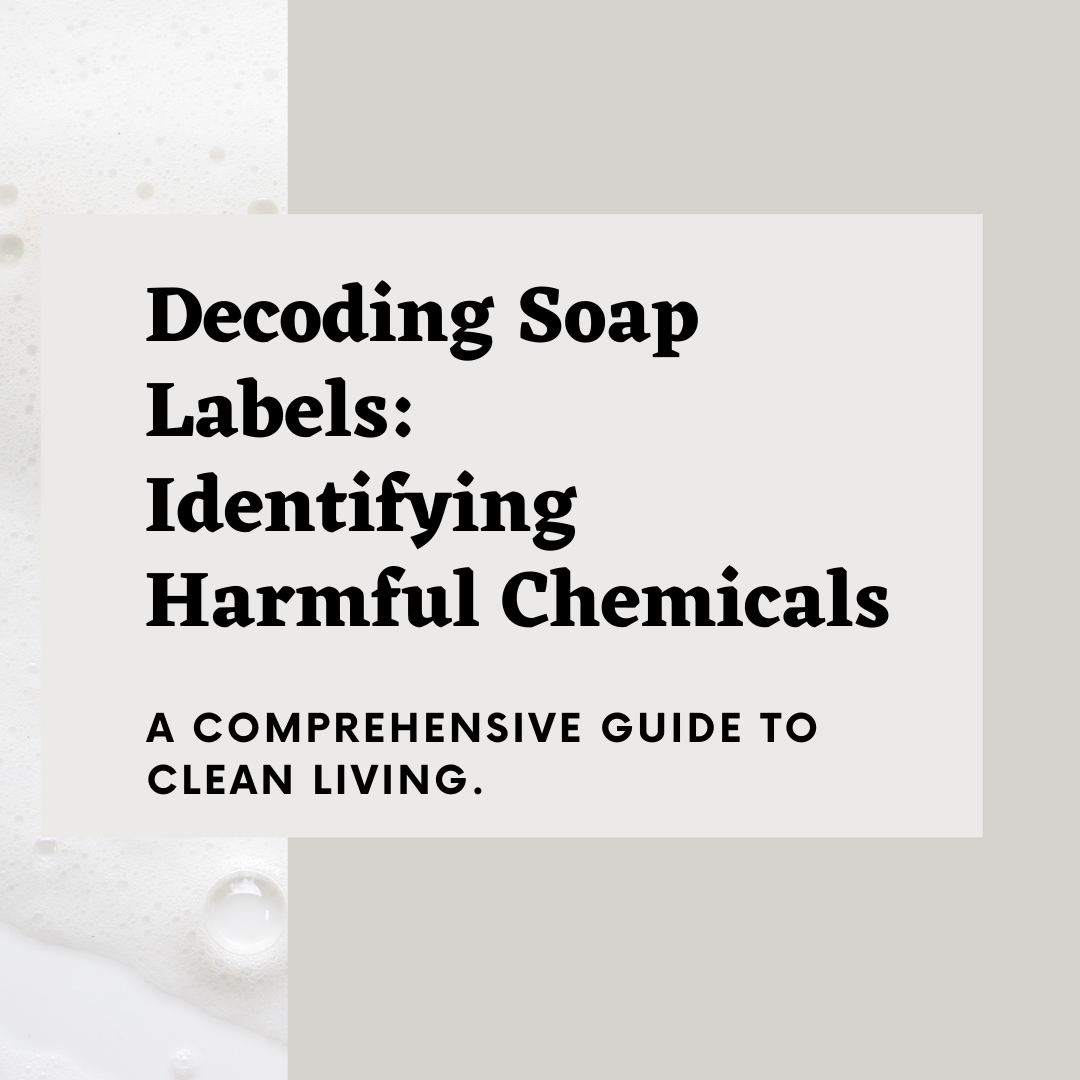
Decoding Soap Labels:
A Comprehensive Guide to Identifying Harmful Chemicals
In a world saturated with a chemical filled soap options, deciphering the cryptic language of soap labels can be an overwhelming to do. Many commercial soaps are loaded with harmful chemicals that may affect your skin and overall health.
To help you make informed choices, we've put together a comprehensive guide on how to read soap labels, allowing you to identify those troublesome ingredients and opt for a safer, chemical-free alternative.
Understanding the Basics
Soap labels can be filled with technical jargon, but breaking down the basics makes the process much more manageable. Here are key terms to look out for:
- Sulfates (SLS and SLES):
- These foaming agents may cause skin irritation and are often found in conventional soaps. Look for sulfate-free options to maintain a gentle cleansing routine.
- Parabens:
- Commonly used as preservatives, parabens have been linked to hormone disruption. Choose soaps labeled "paraben-free" to avoid these potentially harmful additives.
- Triclosan:
- An antibacterial agent, triclosan, has been associated with various health concerns. Steer clear of soaps containing this ingredient, and opt for natural antibacterial alternatives.
Tips for Deciphering Soap Labels
- Go for Short and Understandable Ingredients:
- The longer the ingredient list and the more complex the names, the higher the likelihood of hidden chemicals. Choose soaps with shorter, more straightforward ingredient lists.
- Look for Natural Oils and Butters:
- Ingredients like coconut oil, olive oil, and shea butter are beneficial for the skin. Soaps containing these natural elements often provide nourishment without harmful additives.
- Avoid Harsh Detergents:
- Identify and steer clear of detergents such as sodium lauryl sulfate (SLS) and sodium laureth sulfate (SLES). These can strip the skin of its natural oils and cause irritation.
Why Choose Chemical-Free Soaps?
- Gentle on the Skin:
- Chemical-free soaps are gentle and nourishing, making them suitable for all skin types, including sensitive skin.
- Supporting Overall Health:
- Eliminating harmful chemicals from your skincare routine can contribute to better overall health. Choosing chemical-free options reduces the risk of skin irritation, allergies, and potential long-term health issues.
Being an informed consumer begins with understanding what goes into the products you use daily. By decoding soap labels and avoiding harmful chemicals, you not only prioritize your skin's health but also make a conscious choice towards a cleaner, greener lifestyle. Embrace the power of knowledge, and let your soap be a testament to your commitment to well-being.

